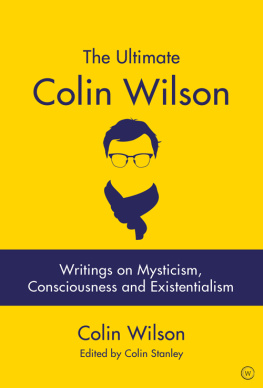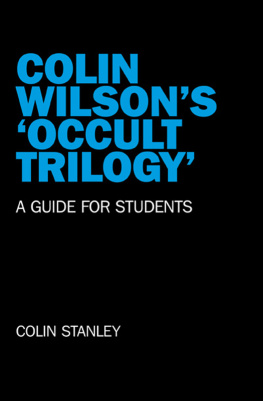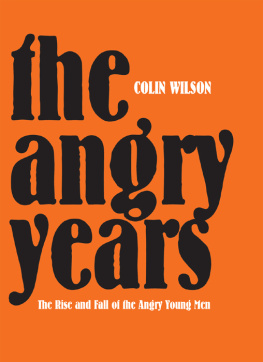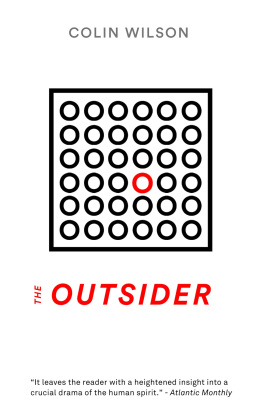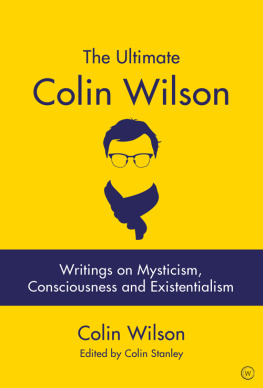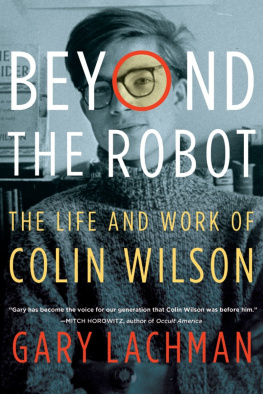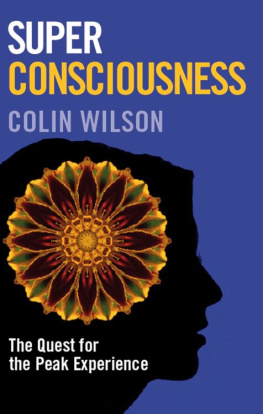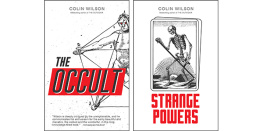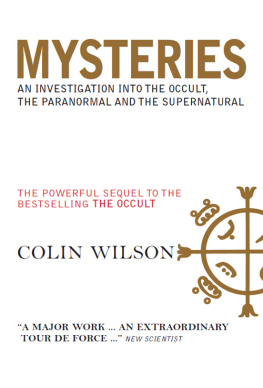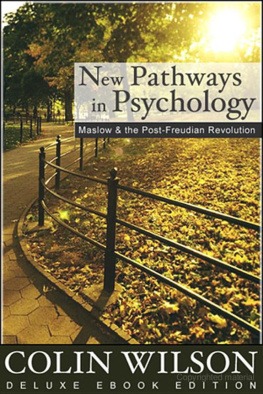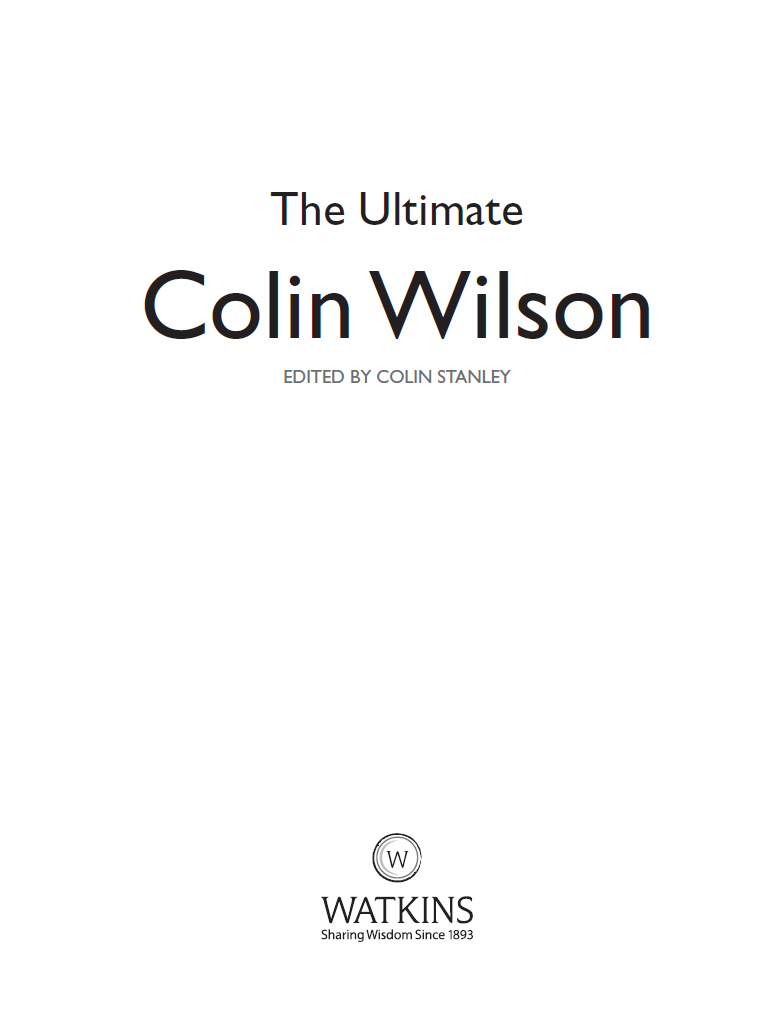Colin Wilson was one of the most prolific, versatile and popular writers of the past 50 years. He was born in Leicester in 1931, and left school at sixteen. After he had spent years working in a wool warehouse, a laboratory, a plastics factory and a coffee bar, his first book, The Outsider, was published in 1956. It received outstanding critical acclaim and was an immediate bestseller. He wrote many books on philosophy, the occult, crime and sexual deviance, plus a host of successful novels that won him an international reputation. His work has been translated into Spanish, French, Swedish, Dutch, Japanese, German, Italian, Portuguese, Danish, Norwegian, Finnish and Hebrew. Colin Wilson died in December 2013.
Colin Stanley was born in Topsham, Devon, UK in 1952 and educated at Exmouth School. Beginning in 1970, he worked for Devon Library Services, studying for two years in London, before moving, with his wife Gail, to Nottingham where he worked for the University of Nottingham until July 2005. He is Colin Wilsons bibliographer, Managing Editor of Paupers Press and has worked part-time for the Universities of Oxford and Nottingham Trent, spending the rest at the cinema and theatre, listening to music, writing, editing, reading and watching cricket. He is the author of two experimental novels and several books and booklets about Colin Wilson and his work including students guides to his Outsider Cycle, Occult Trilogy, Existential Criticism and, most recently, An Evolutionary Leap: Colin Wilson on Psychology. He edited Around the Outsider a festschrift for Wilsons 80th birthday and wrote a Foreword to the 2015 Watkins edition of The Occult. He is also the editor of Colin Wilson Studies, a series of books and extended essays written by Wilson scholars worldwide, and convener of the 2016 and 2018 International Colin Wilson Conferences at the University of Nottingham. His collection of the authors work forms the basis of a Wilson archive at the University which now includes many of his manuscripts, letters, journals, etc. He now resides with Gail by the River Trent, close to Trent Bridge cricket ground.
Also by Colin Wilson
published by Watkins
Super Consciousness
The Occult
Beyond the Occult
Mysteries
The Supernatural
CONTENTS
The Estate of Colin Wilson is grateful to the Orion Publishing Group and Tarcher (an imprint of the Penguin Publishing Group) for permission to reprint from The Outsider and to Aristeia Press for permission to reprint from Religion and the Rebel.
EDITORS PREFACE
Colin Stanley
Selected, edited, and with an introduction and postscript by the author himself, The Essential Colin Wilson was published in the U.K. by Harrap Limited in 1985 and Celestial Arts in the U.S. a year later. A paperback edition appeared in the U.K., in 1987, published by Grafton.
It is true that writers can be notoriously bad when it comes to looking at their own work objectively but Wilson was certainly the exception in this case and he succeeded in compiling an important collection for anyone approaching his work for the first time. At the age of just 54, it was his 74th published book and, in the 28 years prior to his death in 2013, he produced another 100 titles providing plenty of material for an update.
To this end I have asked four experts on Colin Wilsons work: Nicolas Tredell, Geoff Ward, Gary Lachman and Vaughan Rapatahana, to recommend a post-1985 essay/book extract which they consider important. To these I have added a choice of my own.
Because this new edition completes the original, it has been decided to update the title to The Ultimate Colin Wilson.
It is my hope that Colin Wilson would not have been displeased.
INTRODUCTION (1985)
As I look back over fifty-odd books, whose subjects range from mysticism to criminology, I can see that a single thread runs through all my work: the question of how man can achieve these curious moments of inner freedom, the sensation of sheer delight that G. K. Chesterton called absurd good news.
Yeats described the sensation in a short poem:
My fiftieth year had come and gone,
I sat, a solitary man,
In a crowded London shop,
An open book and empty cup
On the marble table-top.
While on the shop and street I gazed
My body of a sudden blazed;
And twenty minutes more or less
It seemed, so great my happiness,
That I was blessed and could bless.
Such sensations seem to occur when we relax below some threshold of tension that normally traps us in a more superficial consciousness. There is a sensation of freedom, of peace and serenity. In such moments we also feel that our energies are more-than-adequate to meet any challenge in sharp contrast to normal consciousness, which always seems to be in a hurry, and in which we have a vaguely uncomfortable sense that our energies are never quite adequate.
The feeling of absurd good news is often contradicted by its opposite what might be called absurd bad news a feeling that we are helpless victims of forces far stronger than we are. In these moods, it seems that all our values are illusions created by the body. There is a scene in A Farewell to Arms where the hero is being prepared for an operation by a nurse with whom he is in love. He asks her if she will be on duty that night after the operation. She says:
I probably will. But you wont want me.
Yes, 1 will. No, you wont. Youve never been operated on. You dont know how youll be.
Ill be all right.
After the operation, he admits:
I was sick, and Catherine was right. It did not make any difference who was on night-duty.
When he looks at her before the operation, he can see that she is beautiful and desirable; ergo, he will want to make love to her after the operation. He acknowledges that he may feel sick, but he is certain that he will simply overrule his sickness. In the event, it overrules him. The underlying suggestion is that our values, like our desires, are merely physical sensations.
The same thing is suggested even more chillingly in Fleckers Hassan. After the two lovers have been tortured to death because the girl has refused to give herself to the Caliph their ghosts meet by the fountain in the Caliphs garden. The fountain ghost tells her: As long as you remember what you have suffered, you will stay near the house where your blood was shed. She replies: We will remember that ten thousand years. The ghost tells her: You have forgotten you are a spirit. The memories of the dead are thinner than their dreams. And when the wind from eternity blows, she calls to her lover: Speak to me, speak to me, Rafi, and his ghost answers: Rafi Rafi who was Rafi? Here Flecker sounds a note of pessimism that goes beyond the tragedy of their deaths: the suggestion that they have died for a delusion, and that all men die for delusions ....
For me, the problem first presented itself at Christmas-time as a child. That marvellous feeling of richness and excitement made it obvious that life is not difficult and boring and repetitive. Then came the new year and return to school, and it was like waking up from a pleasant dream in an icy bedroom. The glow of Christmas seemed an illusion. Yet the moment the moods of happiness and freedom came back on a day-trip to the seaside or picking blackberries on an autumn afternoon it was quite plain they were not some kind of delusion or wishful thinking. It was again self-evident that the world was a far bigger and more exciting place than we normally give it credit for.
Now this raised an interesting question. When you have learned to solve some puzzling problem like how to remove a bicycle tyre or extract a square root the solution stays in your head permanently; you do not forget it the next day. Yet in the case of this question whether the absurd good news is a delusion or reality the solution seemed to evaporate into thin air the next day, so it was impossible even to remember what I had felt so happy about.
Next page
